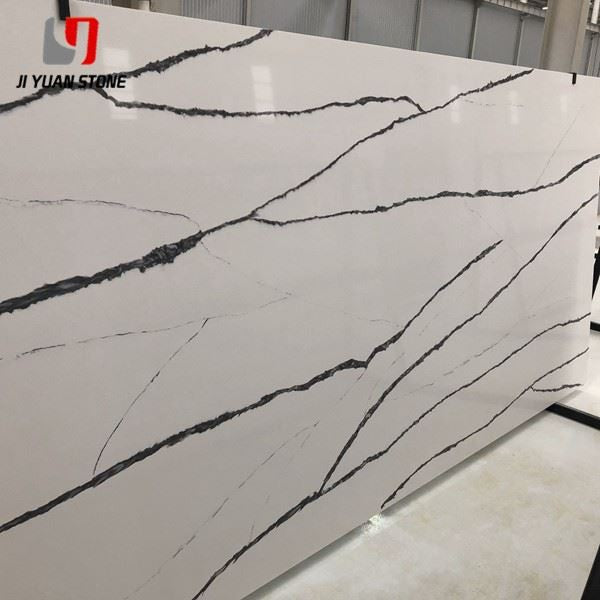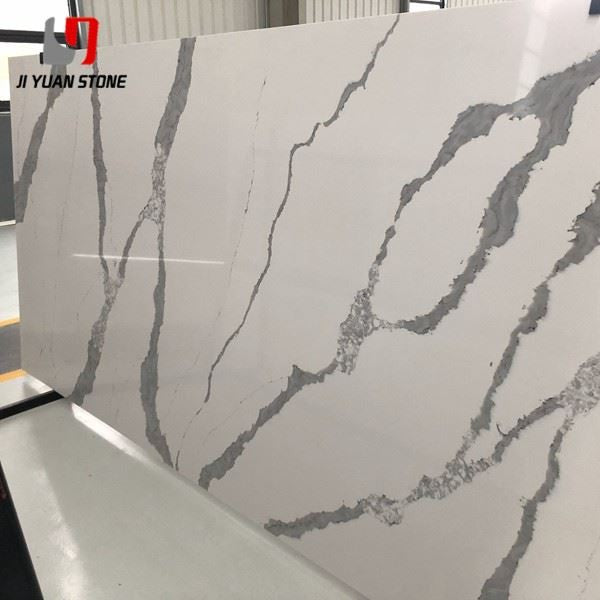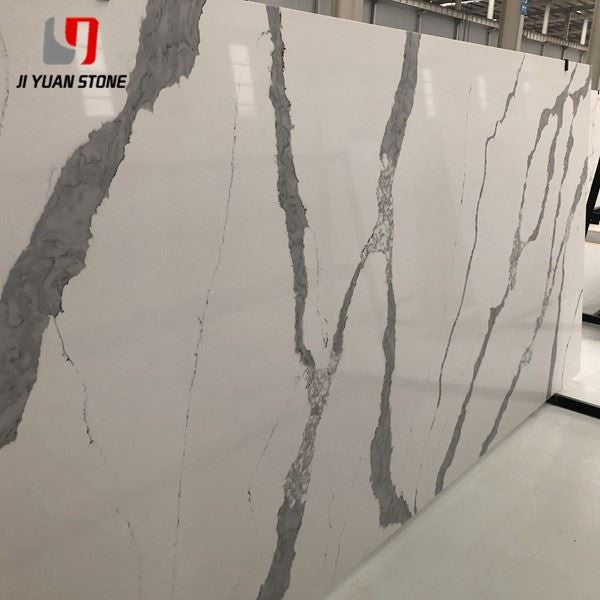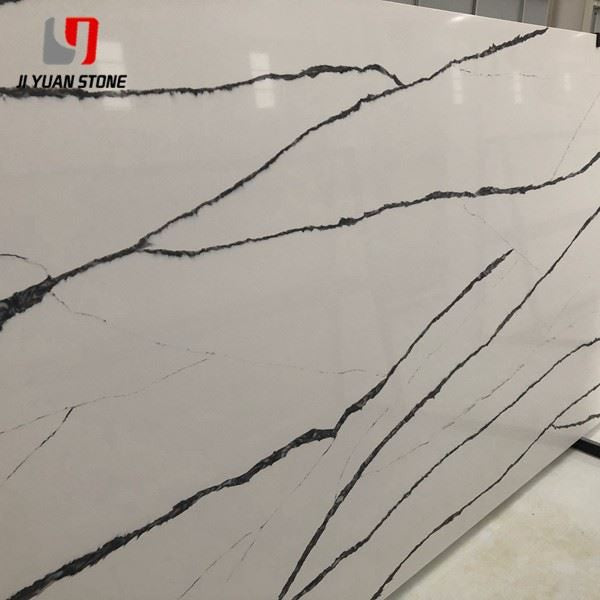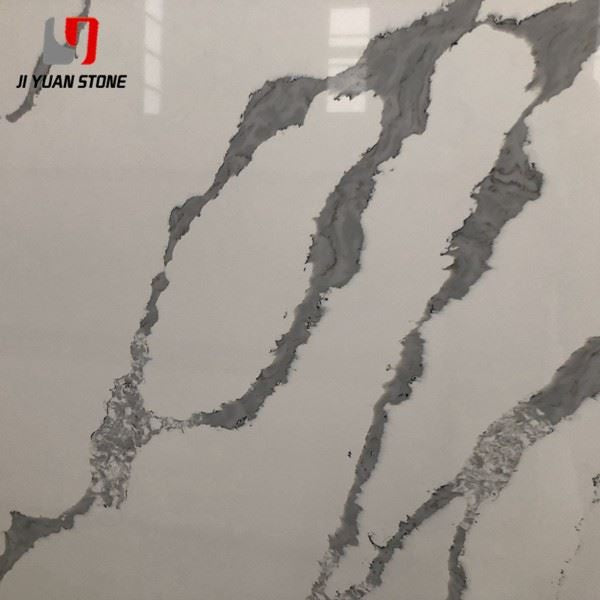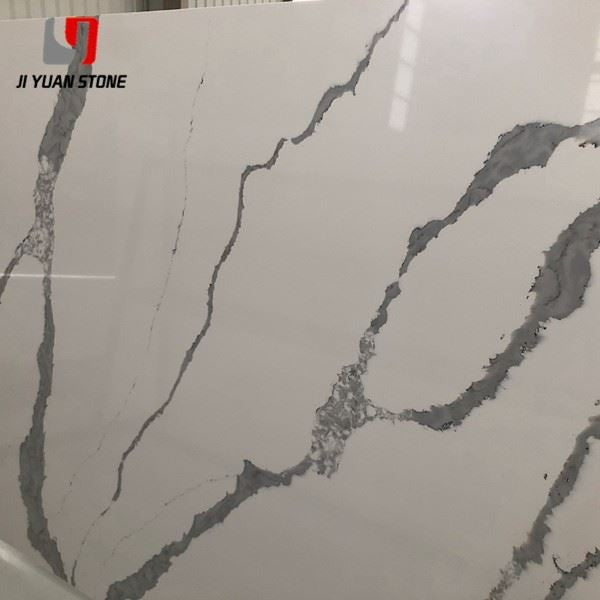Bianco Calacatta Quartz
Bianco Calacatta Quartz
Bianco Calacatta Quartz – Elevate Your Kitchen with Modern Elegance
Enhance your space with Bianco Calacatta Quartz, a durable and stylish option for countertops and surfaces. With its distinct veining and elegant white background, this quartz adds a touch of sophistication to any room. Made with 93% natural quartz, it is also heat, scratch, and stain resistant, making it a practical choice for everyday use. Upgrade your home with this stunning and reliable quartz option.
| Feature | Details |
|---|---|
| Material | 93% Nature Quartz |
| Bianco calacatta quartz countertop size | 96"x26", 108''x26''; |
| Island size |
|
| Vanity top Size: |
|
| Big Slab Size |
|
| Slab Size | 1400*3000 1600*3200 1800*3200 or cut to size |
| Thickness | 12mm, 15mm, 20mm,30mm |
| Surface | 100% full polished |
| Color range | Calacatta, marble looks, Carrara, basic colors, mixed colors |
| Slabs packing |
105 slabs 2cm per 20ft container and 70 slabs 3cm per 20ft container |
| Applications |
Kitchen countertop, bathroom vanity tops, benchtops, kitchen island, bar countertops, residential and commercial projects. |
| Delivery time | Around 20 days after getting the deposit |
Bring refined sophistication into your home with Bianco Calacatta Quartz, a premium countertop material that blends luxury with practicality. Featuring a soft white background with dramatic gray veining, this quartz stone offers the timeless look of marble with the unmatched durability of engineered quartz.
Designed for modern minimalist and light luxury interiors, Bianco Calacatta Quartz creates an atmosphere of simplicity, class, and functionality—ideal for contemporary kitchens and living spaces.
What Makes Bianco Calacatta Quartz Ideal for Kitchens?
Bianco Calacatta Quartz is more than just a beautiful surface—it's a high-performance solution for busy, stylish households. Whether you're preparing daily meals or entertaining guests, this material combines aesthetic elegance with long-lasting strength.
Key Features:
✅ Striking Marble-Inspired Design – Natural white surface with bold, dynamic veining
✅ Durable & Scratch-Resistant – Perfect for everyday kitchen use
✅ Stain-Resistant & Non-Porous – Easy to clean, hygienic, and low maintenance
✅ Heat & Impact Resistant – Withstands hot pots and daily wear with ease
✅ Eco-Friendly Composition – Non-toxic and safe for food prep areas
What Are the Routine Practices for Bianco Calacatta Quartz Kitchen Countertops?
Modern kitchen design emphasizes both form and function. Bianco Calacatta Quartz aligns perfectly with today's popular minimalist light luxury style, often seen in high-end residential designs.
Here are the current common practices when installing Bianco Calacatta Quartz countertops:
1. Front Hanging Edge Design
- Option 1: 45-Degree Cut – A sleek, modern finish that blends into minimalist kitchens.
- Option 2: Small Arc Edge (Approx. 45mm) – Adds a subtle curve to prevent water from dripping down cabinets or floors.
While both options are used, the 45-degree cut is more frequently preferred for its clean, geometric appeal.
2. Water Blocking Against the Wall
- Method 1: Post-Installation Strip – Installed after the countertop, this is easier to adjust on-site and currently more popular due to its simplicity.
- Method 2: Pre-Fabricated Arc Transition – More complex, requires precision fabrication and installation, but offers a seamless appearance. However, irregularities in wall tiling often lead to imperfect gaps, making this option less common.
Design & Style Versatility
Whether you're aiming for a sleek modern look or a classic luxury ambiance, Bianco Calacatta Quartz adapts beautifully. It can be used for:
✔ Kitchen Countertops
✔ Backsplashes
✔ Bathroom Vanities
✔ Island Surfaces
✔ Wall Cladding
Final Thoughts
If you're looking to upgrade your kitchen with a surface that embodies style, strength, and sophistication, Bianco Calacatta Quartz is the perfect choice. It brings together the opulent look of natural stone and the practicality of modern quartz materials.
Choose Bianco Calacatta Quartz for a timeless kitchen design that offers durability, ease of maintenance, and unmatched beauty. Transform your space into a showcase of elegance and function—where every detail speaks of quality and refinement.
Share
